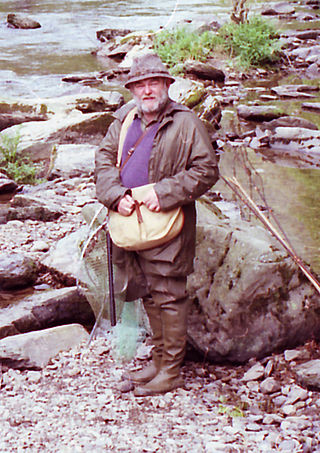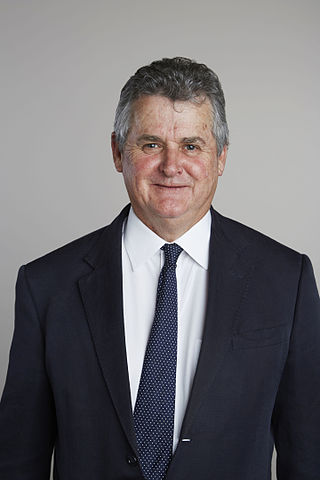Related Research Articles

The Institution of Civil Engineers (ICE) is an independent professional association for civil engineers and a charitable body in the United Kingdom. Based in London, ICE has over 92,000 members, of whom three-quarters are located in the UK, while the rest are located in more than 150 other countries. The ICE aims to support the civil engineering profession by offering professional qualification, promoting education, maintaining professional ethics, and liaising with industry, academia and government. Under its commercial arm, it delivers training, recruitment, publishing and contract services. As a professional body, ICE aims to support and promote professional learning, managing professional ethics and safeguarding the status of engineers, and representing the interests of the profession in dealings with government, etc. It sets standards for membership of the body; works with industry and academia to progress engineering standards and advises on education and training curricula.
The Engineering and Physical Sciences Research Council (EPSRC) is a British Research Council that provides government funding for grants to undertake research and postgraduate degrees in engineering and the physical sciences, mainly to universities in the United Kingdom. EPSRC research areas include mathematics, physics, chemistry, artificial intelligence and computer science, but exclude particle physics, nuclear physics, space science and astronomy. Since 2018 it has been part of UK Research and Innovation, which is funded through the Department for Business, Energy and Industrial Strategy.
The Doctor of Engineering is a professional doctorate in engineering and applied science. An EngD is a terminal degree similar to a PhD in engineering but applicable more in industry rather than in academia. The degree is usually aimed toward working professionals.

The University of Cambridge Department of Engineering is the largest department at the University of Cambridge. The Department is known for collaborating with other disciplines, institutions, companies, and entrepreneurs and for adopting an integrated approach to research and teaching.

Sir Charles Edward Inglis, was a British civil engineer. The son of a medical doctor, he was educated at Cheltenham College and won a scholarship to King's College, Cambridge, where he would later forge a career as an academic. Inglis spent a two-year period with the engineering firm run by John Wolfe-Barry before he returned to King's College as a lecturer. Working with Professors James Alfred Ewing and Bertram Hopkinson, he made several important studies into the effects of vibration on structures and defects on the strength of plate steel.

Robert James Mair, Baron Mair, is a geotechnical engineer and Emeritus Sir Kirby Laing Professor of Civil Engineering and director of research at the University of Cambridge. He is Head of the Cambridge Centre for Smart Infrastructure and Construction (CSIC). He was Master of Jesus College, Cambridge, from 2001 to 2011 and a fellow of St John's College, Cambridge, from 1998 to 2001. In 2014 he was elected a vice president of the Institution of Civil Engineers and on 1 November 2017 became the Institution's president for 2017–18, its 200th anniversary year. He was appointed an independent crossbencher in the House of Lords in 2015 and is currently a member of its Select Committee on Science and Technology.

Peter Rolfe Vaughan ACGI, DIC, FREng, FICE, FCGI, MASCE, FGS, was Emeritus Professor of Ground Engineering in the Geotechnics department of Imperial College London.

The Telford Medal is a prize awarded by the British Institution of Civil Engineers (ICE) for a paper or series of papers. It was introduced in 1835 following a bequest made by Thomas Telford, the ICE's first president. It can be awarded in gold, silver or bronze; the Telford Gold Medal is the highest award the institution can bestow.
Tan Sri Prof. Chin Fung Kee was a respected and outstanding Malaysian civil engineer in engineering practice, as well as engineering research and education. He is known for his excellence in geotechnical, structural and hydraulic engineering. He was a local pioneer engineer who played a key role in the development of engineering education, research and practice in the country. His knowledge and contributions benefited the engineering fraternity both nationally and internationally and his achievements were recognized worldwide.

John Boscawen Burland is a geotechnical engineer, Emeritus Professor and Senior Research Investigator at the Department of Civil and Environmental Engineering of Imperial College London, and a noted expert in the field of soil mechanics.

The Department of Civil and Environmental Engineering is the academic department at Imperial College London dedicated to civil engineering. It is located at the South Kensington Campus in London, along Imperial College Road. The department is currently a part of the college's Faculty of Engineering, which was formed in 2001 when Imperial College restructured. The department has consistently ranked within the top five on the QS World University Rankings in recent years.

Andrew Noel Schofield FRS FREng is a British soil mechanics engineer and an emeritus professor of geotechnical engineering at the University of Cambridge.
David Malcolm Potts is a professor of Analytical Soil Mechanics at Imperial College London and the head of the Geotechnics Section at Imperial College. He has been a member of the academic staff at Imperial College since 1979, responsible for teaching the use of analytical methods in geomechanics and the design of slopes and earth retaining structures, both at undergraduate and postgraduate levels.

Scott William Sloan FRS FREng FAA FTSE was laureate Professor of Civil Engineering at the University of Newcastle.
Ronald Kerry Rowe, OC, BSc, BE, PhD, D.Eng, DSc (hc), FRS, FREng, NAE, FRSC, FCAE, Dist.M.ASCE, FEIC, FIE(Aust), FCSCE, PEng., CPEng. is a Canadian civil engineer of Australian birth, one of the pioneers of geosynthetics.

Abir Al-Tabbaa CEng FICE is a Professor of Civil and Environmental Engineering at the University of Cambridge. She works on intelligent materials for infrastructure. She is the Director of the Future Infrastructure and Built Environment Doctoral Training Centre.
Nicole Metje PhD, MCInstCES, MASCE, FHEA is professor of infrastructure monitoring, head of the Power and Infrastructure Research Group, and deputy director for sensors of the UKCRIC National Buried Infrastructure Facility at the University of Birmingham. She plays a significant role in the development and application of sensors for buried infrastructure assessment and monitoring.

Charles Ng Wang-wai is the first CLP Holdings Professor of Sustainability and Chair Professor in the Department of Civil and Environmental Engineering at the Hong Kong University of Science and Technology (HKUST). He is also the vice-president of HKUST (Guangzhou) and the dean of the Fok Ying Tung Graduate School at HKUST, Clear Water Bay Campus. He is the immediate past president of the International Society for Soil Mechanics and Geotechnical Engineering (ISSMGE), where he served as the 17th President from 2017 to 2022.
Robert Scott Steedman CBE, FREng, FICE is a British engineer, former academic, TV presenter and standards expert. He is currently Director-General, Standards at BSI Group, the UK's national standards body.
Lidija Zdravković is a Serbian and British civil engineer who is Professor of Computational Geomechanics and Head of Geotechnics in the Department of Civil and Environmental Engineering of Imperial College London. Her research involves the use of the finite element method in geotechnical engineering, the study of the mechanical behavior of soil and rock in engineering applications. She is a coauthor of the two-volume textbook Finite Element Analysis in Geotechnical Engineering.
References
- 1 2 3 4 5 6 7 8 9 10 Oliver, Anthony (1 November 2012). "Knowledge is Power". New Civil Engineer: 17–18.
- 1 2 3 Faculty of Engineering. "Professor BG Clarke". University of Leeds. Retrieved 4 November 2012.
- 1 2 3 Institution of Civil Engineers. "Eur Ing Professor Barry Clarke". Archived from the original on 10 December 2011. Retrieved 4 November 2012.
- ↑ "Strategic Advisory Team". EPSRC: Portfolio: strategy. EPSRC. Archived from the original on 8 December 2012. Retrieved 12 November 2012.
- ↑ "Thomas Telford Limited". Companies House. Retrieved 25 October 2022.
- ↑ Faculty of Engineering. "Prestigious appointment for Professor Barry Clarke". University of Leeds. Retrieved 4 November 2012.
- ↑ "Professor Barry Clarke inaugurated as ICE president with rallying cry for more engineers". New Civil Engineer. Retrieved 7 November 2012.